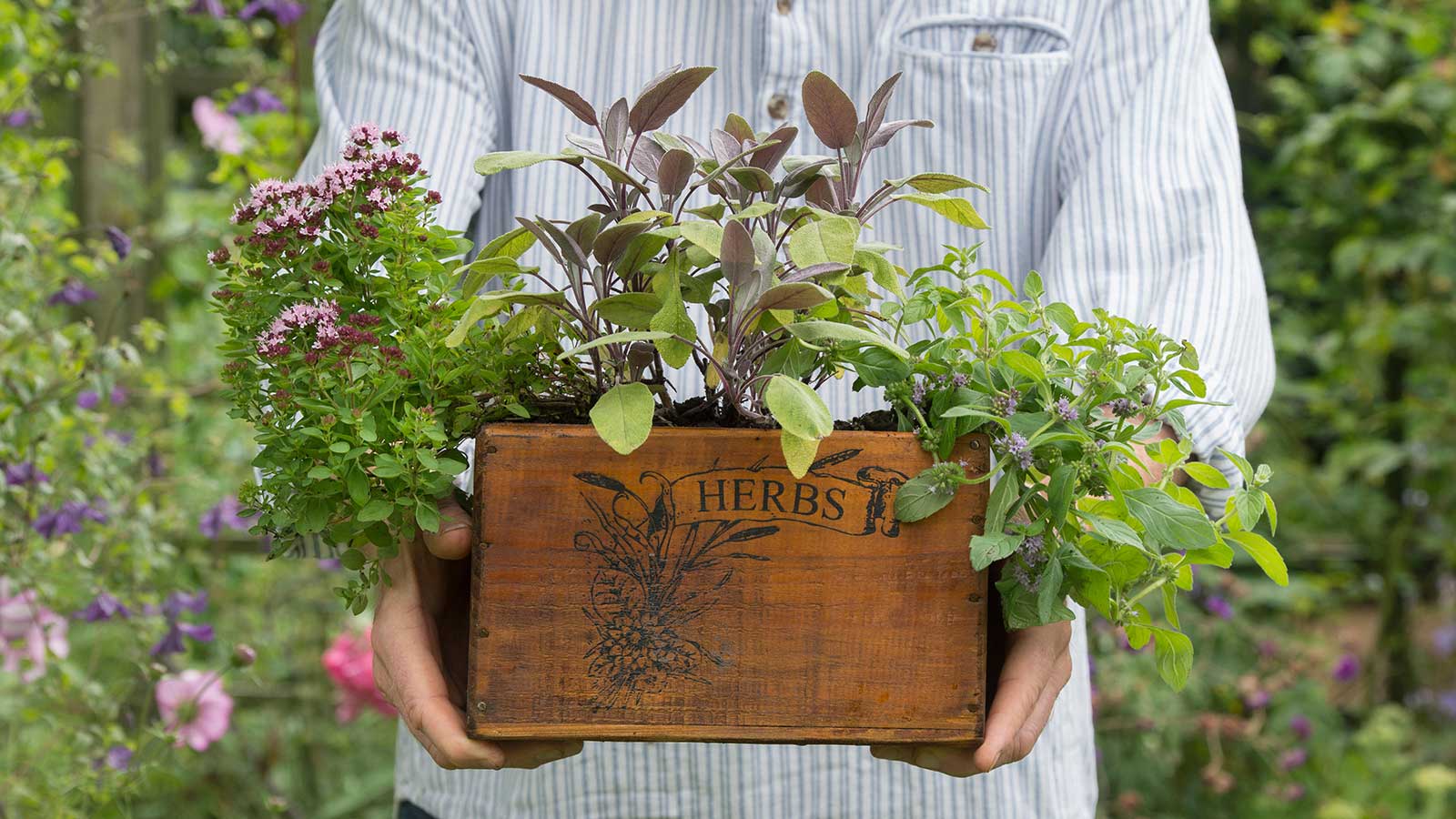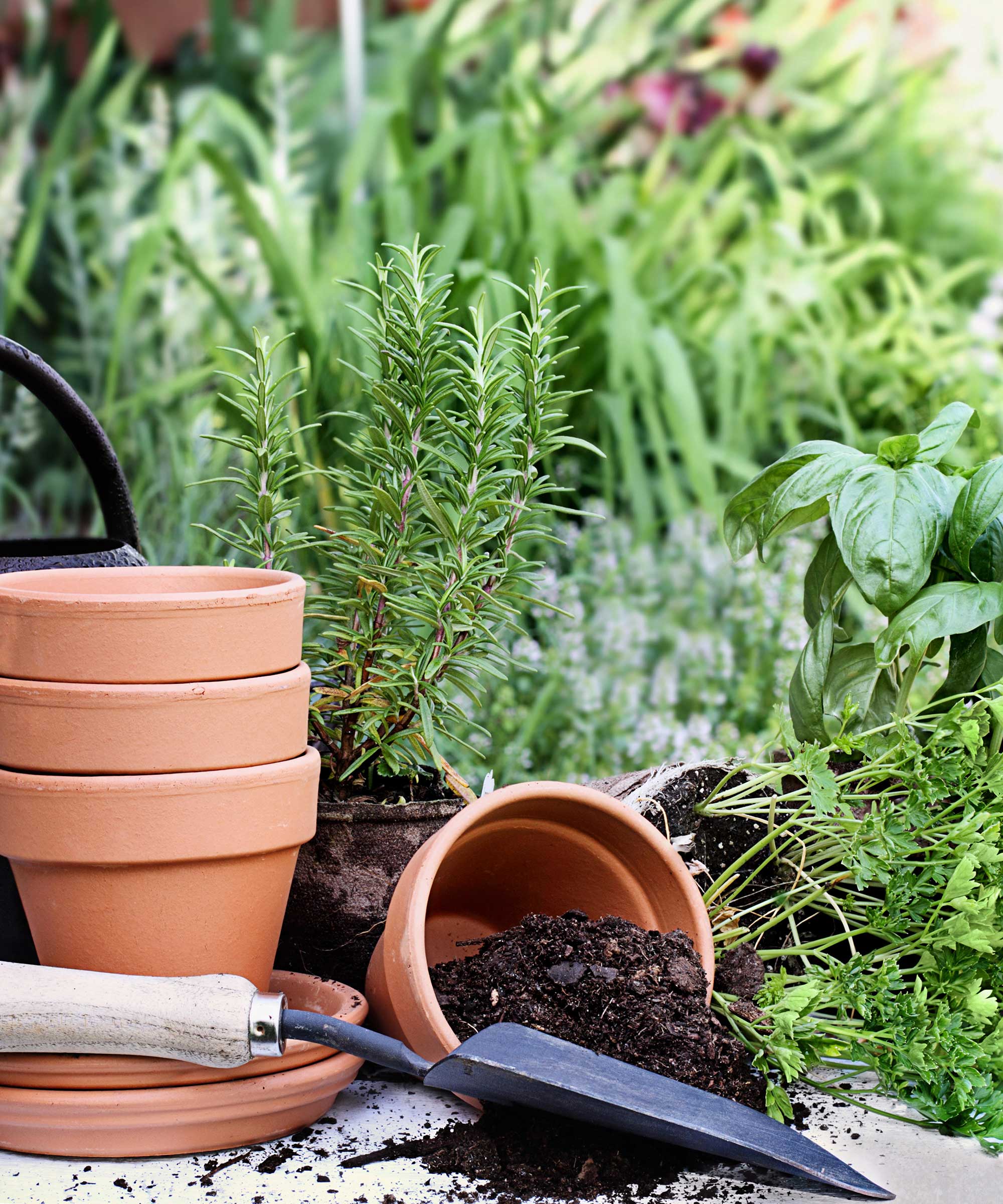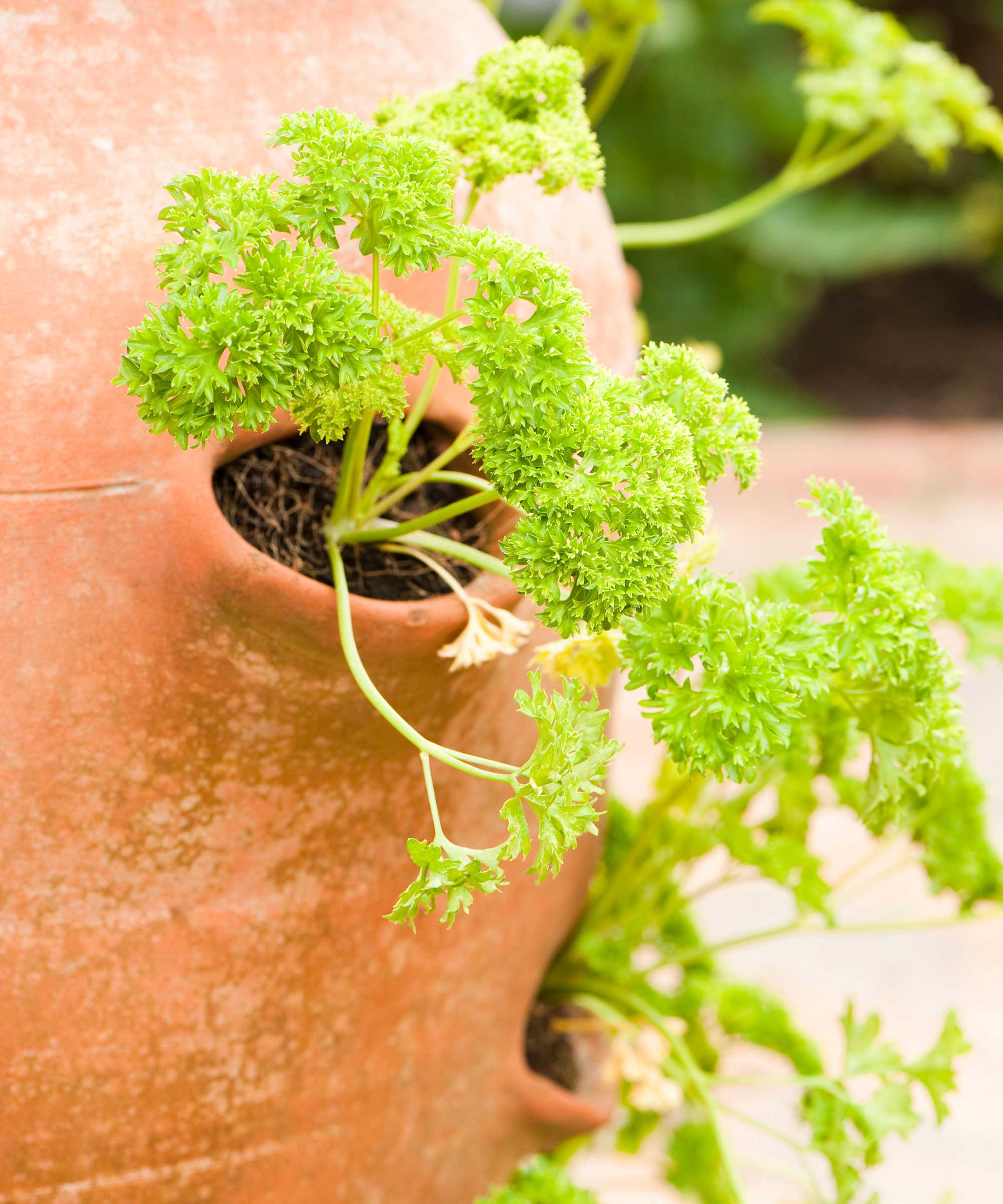What is the best potting soil for herbs? Create the perfect growing environment with these tips
Help your container herbs thrive by providing the right type of soil


Q: I am planning a new herb garden for my patio, and will be growing them in pots. What is the best soil to use?
A: Herbs are the perfect addition to a sunny outdoor living space, and are easy to grow. However, for a herb garden to thrive, it's essential to get the soil mix right, especially if you're using containers.
One of the most important factors for happy, healthy herbs is proper drainage. Containers with holes in the bottom are vital, as is raising the pots onto 'pot feet', but the soil you use must have good drainage, too. This is especially the case for woody, Mediterranean herbs, such as lavender and rosemary. The exception is mint, which prefers its soil to be a little more moist.
Using a nutrient-rich soil mix can also help these plants thrive. And consider the pH level, too – some plants, such as parsley and sage, prefer neutral to alkaline soil. Others, such as dill, prefer a more slightly more acidic growing environment.

A good potting mix is the first step in helping herbs thrive
How to make a potting mix for herbs
While a good potting mix (such as Burpee's Premium Organic Potting Soil from Amazon) should be just fine for most herb planters, you can also create your own.
To do so, gardening expert Tony O'Neill of Simplify Gardening recommends combining good-quality compost, coir, and perlite or vermiculite. Keep the ratios roughly equal.
'Compost acts as a slow-release fertilizer, providing essential nutrients as it breaks down,' he says. It's a good opportunity to use homemade compost, if you have it.
Design expertise in your inbox – from inspiring decorating ideas and beautiful celebrity homes to practical gardening advice and shopping round-ups.
Coir, a by-product of the coconut industry, helps the soil retain enough moisture while allowing excess water to drain, he continues. You can shop SpongeEase coco coir bricks from Amazon, which are well-rated amongst gardeners.
'Perlite or vermiculite contributes to the soil's porosity, promoting aeration and preventing root rot,' Tony explains. Again, both are easily found online – try Perfect Plants' organic vermiculite from Amazon, or Perfect Plants' organic perlite, also from Amazon. Alternatively, you can mix in plenty of coarse grit which is also effective at aiding drainage.

Tony O'Neill is an accomplished gardening expert, author, and educator. With a passion for simplifying gardening practices, he has inspired a wide audience through his popular YouTube channel and website SimplifyGardening.com.

Good drainage is essential for most herbs
'It's worth noting that the specific soil blend might need slight tweaks depending on the particular herb species,' Tony adds – 'each herb has unique requirements.'
In terms of pH levels, lime or wood ash will make the soil more alkaline, while acidifying substances such as sulfur can reduce pH levels. So, if you want to be extra vigilant when caring for your herb planters, test the pH of the soil and adjust according to your herbs' preferences.
Getting the soil right is only the first step in successfully growing herbs in pots. 'Once you've chosen the appropriate potting soil, remember to water your herbs regularly and fertilize them every few weeks,' says Diana Cox of TheGardeningTalk.com. Be sure to position them somewhere where they get plenty of sunshine, too.
'With proper care, your herbs will flourish in their new environment,' Diana says. And, you'll be able to enjoy them for months on end, whether you're admiring them in the garden or using them in the kitchen.

Holly started writing about gardening five years ago, and she is a regular contributor to Homes & Gardens. She has also written many gardening features for Woman & Home and Real Homes, too. She has previous experience as a professional gardener, where she helped to plant and maintain private gardens. Holly has also looked after allotment plots over the years and loves to grow her own flowers and veggies from seed. In her spare time, she enjoys visiting local gardens, botanical drawing, and tending to her ever-growing collection of houseplants.